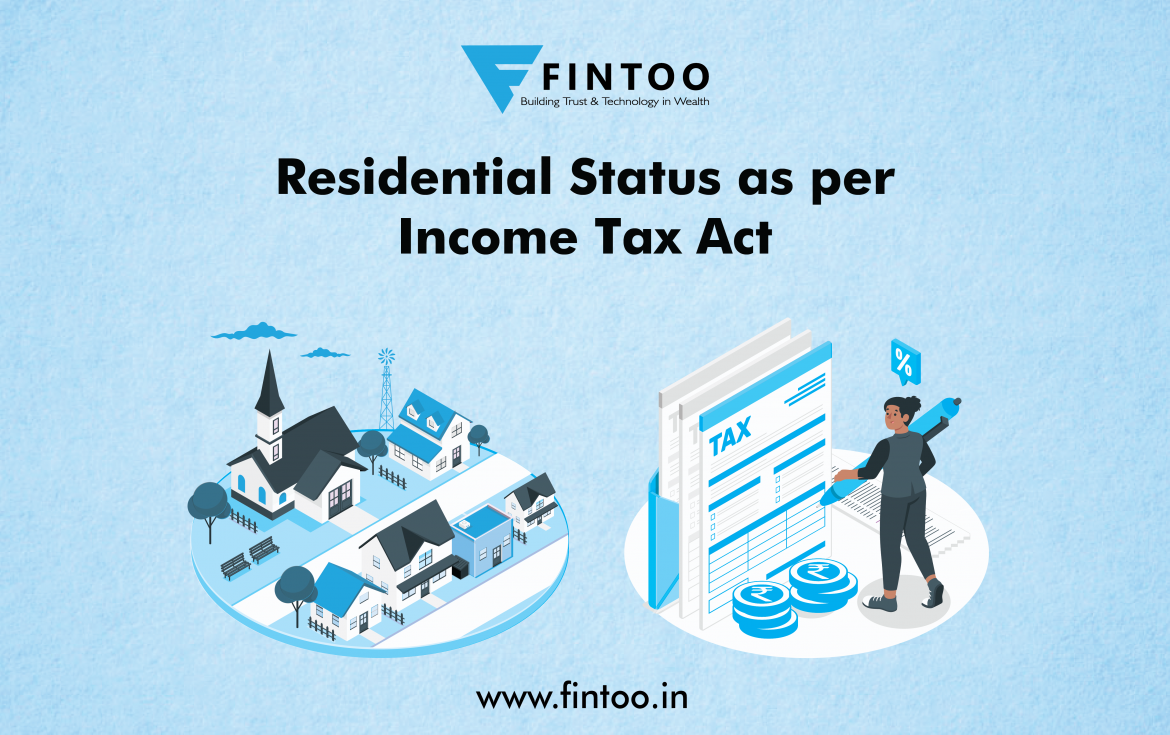

It is important for the Income Tax Department to determine the residential status of a tax-paying individual or company. It becomes particularly relevant during the tax filing season. In fact, this is one of the factors based on which a person’s taxability is decided.
Let us explore the residential status and taxability in detail.
Meaning & importance of residential status:
The term residential status has been defined under the income tax laws of India and must not be confused with an individual’s citizenship in India. An individual may be a citizen of India but may end up being a non-resident for a particular year.
Similarly, a foreign citizen may end up being a resident of India for income tax purposes for a particular year. Also note that the residential status of different types of persons viz an individual, a firm, a company, etc is determined differently.
In this session, we will discuss how the residential status of an individual taxpayer can be determined for any particular financial year.
How to determine residential status?
For the purpose of income tax in India, the income tax laws in India classify taxable persons as:
- A Resident
- A Resident not ordinarily resident (RNOR)
- A non-resident (NR)
The taxability differs for each of the above categories of taxpayers. Before we get into taxability, let us first understand how a taxpayer becomes a resident, an RNOR, or an NR.
Resident:
A taxpayer would qualify as a resident of India if he satisfies one of the following 2 basic conditions:
- Stay in India for a year is 182 days or more or
- Stay in India for the immediately 4 preceding years is 365 days or more and 60 days or more in the relevant financial year
In the event an individual who is a citizen of India or person of Indian origin leaves India for employment during an FY, he will qualify as a resident of India only if he stays in India for 182 days or more.
Such individuals are allowed a longer time greater than 60 days and less than 182 days to stay in India. However, from the financial year 2020-21, the period is reduced to 120 days or more for such an individual whose total income (other than foreign sources) exceeds Rs 15 lakh.
In another significant amendment from FY 2020-21, an individual who is a citizen of India who is not liable to tax in any other country will be deemed to be a resident in India.
The condition for deemed residential status applies only if the total income (other than foreign sources) exceeds Rs 15 lakh and nil tax liability in other countries or territories by reason of his domicile or residence or any other criteria of similar nature.
Also Read: Basics Of Income Tax
Resident Not Ordinarily Resident:
If an individual qualifies as a resident, the next step is to determine if he/she is a Resident ordinarily resident (ROR) or an RNOR. He will be a ROR if he meets both of the following additional conditions:
- Has been a resident of India in at least 2 out of 10 years immediately previous years and
- Has stayed in India for at least 730 days in 7 immediately preceding years
Therefore, if an individual fails to satisfy even one of the above conditions, he would be an RNOR.
From FY 2020-21, a citizen of India or a person of Indian origin who leaves India for employment outside India during the year will be a resident and ordinarily resident if he stays in India for an aggregate period of 182 days or more.
However, this condition will apply only if his total income (other than foreign sources) exceeds Rs 15 lakh. Also, a citizen of India who is deemed to be a resident in India (w.e.f FY 2020-21) will be a resident and ordinarily resident in India.
Non-Resident
An individual satisfying neither of the basic conditions stated above would be an NR for the year.
Taxability
Resident:
A resident will be charged to tax in India on his global income i.e. income earned in India as well as income earned outside India.
NR and RNOR:
Their tax liability in India is restricted to the income they earn in India.
They need not pay any tax in India on their foreign income. Also note that in a case of double taxation of income where the same income is getting taxed in India as well as abroad, one may resort to the Double Taxation Avoidance Agreement (DTAA) that India would have entered into with the other country in order to eliminate the possibility of paying taxes twice.
A financial planning platform where you can plan all your goals, cash flows, expenses management, etc., which provides you advisory on the go. Unbiased and with uttermost data security, create your Financial Planning at Rs. 99/-
Disclaimer: The views shared in blogs are based on personal opinions and do not endorse the company’s views. Investment is a subject matter of solicitation and one should consult a Financial Adviser before making any investment using the app. Making an investment using the app is the sole decision of the investor and the company or any of its communication cannot be held responsible for it.
